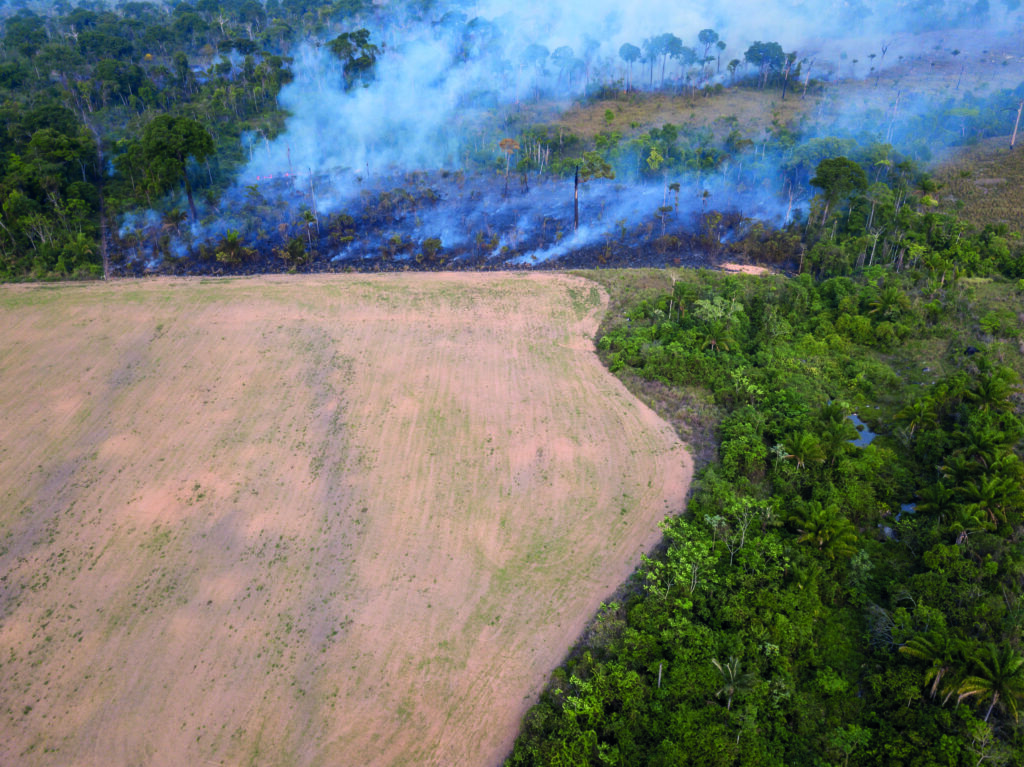The European Commission has proposed that the implementation of the EU Deforestation Regulation implementation is postponed for 12 months to avoid inevitable disruption to supply chains.
The move, which needs to be ratified by the European Parliament and Council of Ministers, follows calls for a delay by a wide-ranging coalition of industry bodies concerned at the potential disruption to the sourcing of commodities like soya under the original timetable.
If the new timetable is approved, the law would apply from December 30, 2025 for large companies and from June 30, 2026 for micro- and small enterprises. Given that all the implementation tools are technically ready, the extra 12 months will serve as a phasing-in period to ensure proper and effective implementation, the Commission said.
The EUDR aims to ensure that certain commodities, including soya, used in the EU market will no longer contribute to deforestation and forest degradation in the EU and elsewhere in the world.
However, last week, calling for delay, a coalition of 29 European farmer and allied industry representatives, described the current timetable is ‘unfeasible’, stressing that as the implementation date has drawn nearer, it has become increasingly clear that the systems required to ensure sustainably-sourced soya will not be ready. They said they were ‘still grappling with severe legal and market uncertainties’ and warned the regulation could cause ‘huge disruption and cost within the food chain’.
The uncertainty around the availability and cost of verified sustainable soya has already resulted in premiums on soya prices for early 2025 for the UK supply chain. The UK uses 2.3m tonnes of soya bean meal in feed each year, with the pig sector among the heaviest users, and compliance with EUDR could cost the UK livestock sectors more than £100 million, according to the Allied Industries Confederation (AIC).
The UK government, meanwhile, is progressing a separate piece of legislation with similar aims, the UK Forest Risk Commodities regulation, due to come into force in 2025 – and it remains to be seen whether it will now mirror the proposed new EU timetable.
Certainty
The European Commission said it recognises that, three months ahead of the intended implementation date, several global partners have repeatedly expressed concerns about their state of preparedness, most recently during the United Nations General Assembly week in New York.
“Moreover, the state of preparations amongst stakeholders in Europe is also uneven. While many expect to be ready in time, thanks to intensive preparations, others have expressed concerns,” it said.
“Given the EUDR’s novel character, the swift calendar, and the variety of international stakeholders involved, the Commission considers that a 12-month additional time to phase in the system is a balanced solution to support operators around the world in securing a smooth implementation from the start.
“With this step, the Commission aims to provide certainty about the way forward and to ensure the success of the EUDR, which is paramount to address the EU’s contribution to the pressing global issue of deforestation.”
Effective and feasible
In a joint statement, organisations representing European primary producers, including farming body Copa-Cogeca, and various industries welcomed the proposal.
“While we fully support the regulation’s objective to combat global deforestation, it is crucial to ensure that it is implemented under the right conditions to be effective and feasible,” they said.
“For many months, our organisations have raised concerns about the regulation’s practical applicability and the substantial administrative burden it imposes. We therefore call the European Parliament and the Council to consider the challenges raised by EU Member States, third countries, and relevant stakeholders, and to approve the Commission’s proposal for a one-year postponement.
“The focus must now shift to addressing the practical challenges associated with the EUDR’s implementation to prevent uncertainties and avoid supply chain disruptions. We will carefully review the guidance document published today and remain committed to further dialogue to ensure workable solutions for all impacted sectors.”




